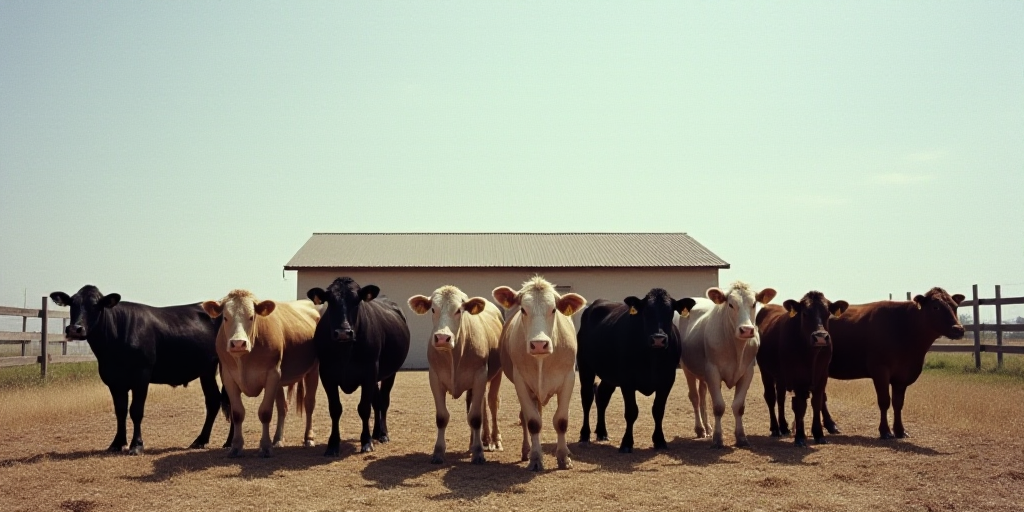Background on CNOG and its Relevance
The Confederation of National Organizations of Cattle Producers (CNOG) plays a crucial role in representing Mexican cattle producers and ensuring their interests are addressed. With a membership of numerous ganaderas (cattle ranches) and associations, CNOG is a vital voice in shaping policies affecting the Mexican cattle industry.
The Current Situation and Projected Losses
Homero García de la Llata, spokesperson for CNOG, has highlighted a concerning 60% drop in projected bovine cattle exports for this year. This decline could result in losses amounting to $400 million or 8,000 million Mexican pesos for Mexican producers. The projection is based on the first half of the year, where only 200,000 heads were exported instead of the expected 600,000.
Impact on Exporters and Prices
These figures translate to a “cost of opportunity” of $500 per head. Exporters from northern states, primarily Chihuahua and Sonora, stand to lose this revenue due to the intermittent closure of the US border caused by the cattle tick infestation and political obstacles. This situation has driven up prices within the Mexican market, affecting both consumers and producers.
CNOG’s Proposed Actions and Calls for Solidarity
García de la Llata emphasized the urgent need to curb illegal cattle smuggling from Central America, which negatively impacts the national market supply and contributes to rising prices. Among the actions CNOG has proposed to the federal government, yet to be fully implemented, are:
- Suspending the import of live bovine cattle into Mexico until the US border remains closed for national exports.
- Negotiating swift regionalization of exporting states and recognition of their procedures by the USDA and AFIS, allowing for phased resumption of exports.
- Establishing a temporary agreement between feedlots and exporting producers to market the stranded cattle in the north at a fair price.
- Implementing an immediate operation by Senasica to enforce origin treatment certification for cattle transport at entry points.
CNOG has also appealed to companies like SuKarne to prioritize purchasing the stranded cattle in northern Mexico. Although acknowledging their autonomy, CNOG deems current Nicaraguan cattle imports “inappropriate” given the critical situation and available high-quality Mexican cattle waiting to be commercialized.
Producers’ Commitment and CNOG’s Efforts
Mexican producers are dedicated to containing and eventually eradicating the cattle tick. García de la Llata pointed out continuous training in southern regions, reporting over 3,000 positive cases to Senasica, and the creation of SINIGA’s intelligence department to combat illegal cattle smuggling. Moreover, ganaderas have invested significantly in adapting export quarantine infrastructure to required protocols.
Key Questions and Answers
- What is CNOG and why is it relevant? CNOG represents Mexican cattle producers, ensuring their interests are addressed in policies affecting the industry.
- What losses does CNOG project for Mexican cattle exports? CNOG projects a 60% decline in bovine cattle exports, potentially causing $400 million in losses for Mexican producers.
- What actions has CNOG proposed to address the situation? CNOG has suggested suspending cattle imports, regionalizing exporting states, and implementing measures to resume exports while ensuring fair pricing and proper treatment certification.
- How are Mexican producers responding to the challenges? Producers are committed to containing the cattle tick infestation, investing in training and infrastructure adaptations, and reporting positive cases to relevant authorities.






